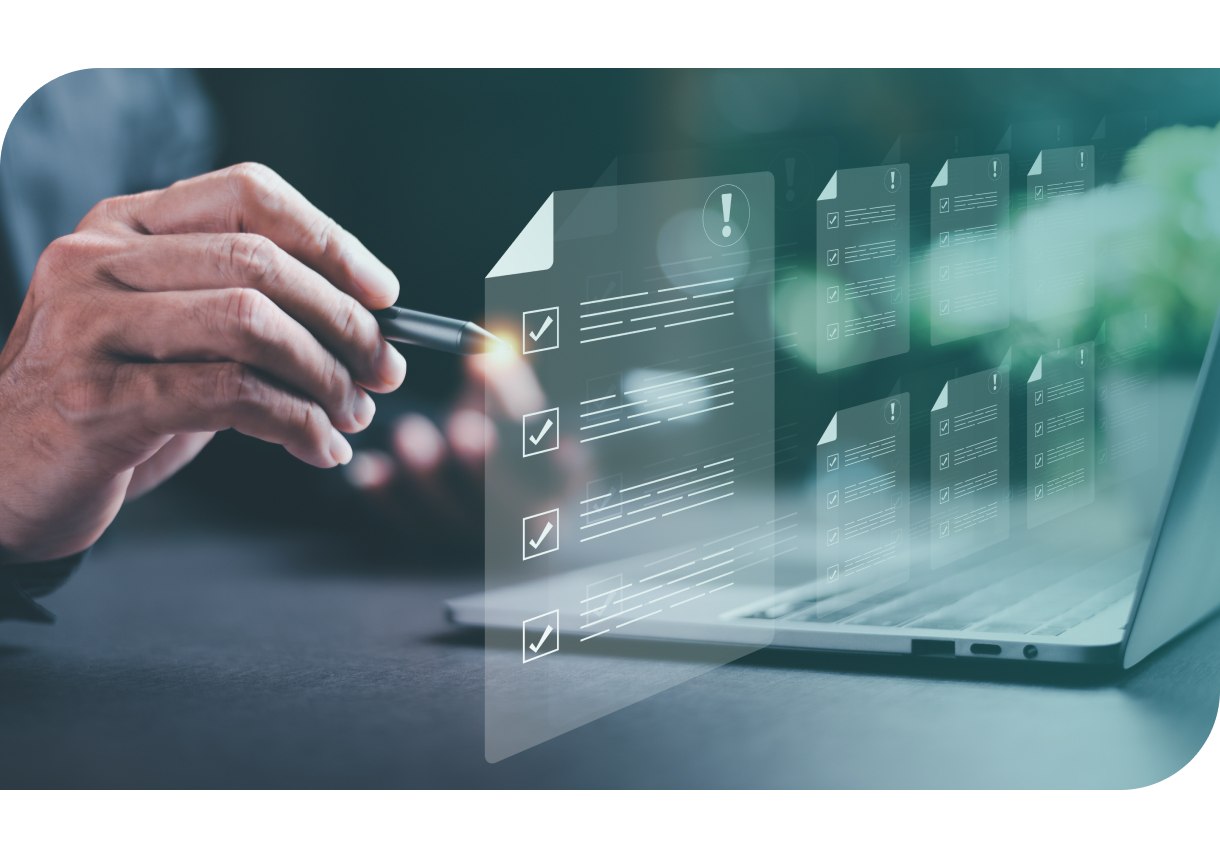Will Legal AI Make You Irrelevant — or Unstoppable?
At LEX Summit 2023, Filevine CEO Ryan Anderson made a bold statement:
“AI will replace lawyers…who fail to adapt to it.”
In Ryan’s keynote speech, he set out the shape of the generational shift coming to the legal industry. In the years ahead,
The invention of carbon paper — and later photocopy machines — made the job of scrivener irrelevant. But it also allowed professionals to operate with exponentially greater efficiency and accuracy than before.
We’re at a similar inflection point. New legal technology that leverages natural language processing and machine learning will make some human work irrelevant. But for others, it will allow them to provide faster, higher-quality service to an expanded clientele.
It all depends on whether you leverage the right technology, such as your favorite case management software.
Here are 6 ways you can harness AI to make your practice unstoppable:

1. Make Smarter Decisions with Predictive Analytics
Your clients want you to tell them the future. Will they win this case if they take it to trial? What strategies will bring them success? What risks will they regret?
Unfortunately, you’re stuck in the present just like they are and you have no crystal ball. But thanks to natural language processing and machine learning, you can have greater access to predictive data than ever before.
Some emerging AI tools are sifting through huge troves of historical legal data in order to reveal consistent patterns. These could help you identify litigation risks, analyze legal data, and make guide your clients toward better legal decisions.
2. Reach Agreement Faster with AI-Powered Contract Management

Contracts make the world go round. But they are also mind-bendingly complex. Your clients want to reach agreement fast, but they also want to be assured that the documents you created for them are accurate, thorough, and will protect their interests.
The perfect contract is no good if it takes too long to deliver. The fastest contract is no good if it leaves dangerous loopholes. You need both. And fortunately, that’s what AI technology can offer.
What might this look like?
- Create custom contracts using clause libraries, powered by machine learning. Instead of scrolling through your library, the software can automatically curate and suggest the most relevant wording.
- Monitor compliance with natural language processing tools and machine learning. These can give you an AI-generate summary, assess risk, outline key terms and obligations, and flag potential issues. And they can do it rapidly, to help you quickly advise clients or renegotiate terms.
- Track expiration and termination dates without confusion. New systems can monitor contracts for key dates, and automatically prompt review or renewal.
Customizing and finalizing the contracts still requires your human judgment. But AI can take over much of the tedious work of drafting contacts from scratch or managing large numbers of complex agreements. By employing AI for contract creation and management, you can focus on providing strategic advice and value for your clients.
3. Draft Better Demand Letters with AI
Demands need to be clear, thorough, and accurate — and to keep clients satisfied, they need to go out quickly.
Currently, legal professionals invest significant time to put together all the appropriate information and draft a letter from scratch or fill out a trusted template. But those who utilize legal case management software have already input the important case information into their system.
Well-trained AI models can transform your data into demands, rapidly pulling out the necessary wording and details and formating it into a high-quality letter. The best made-for-legal AI offerings follow this up with quality-assurance by legal industry experts.
Overall, employing AI in drafting demand letters not only saves time but helps ensure the speediest delivery of most persuasive and legally compelling letter possible in pursuit of a client's interests.
4. Supercharge Your Research Skills

I’m old enough to remember what a physical law library is like. How the big legal tomes smelled, how difficult it was to heft them off the shelf, how some books were so old the corners would crumble when I flipped through their pages.
There’s something quaint about the memory. But I’d never go back to it.
Modern legal research is so much more adept at getting us the information we need. And it’s getting better.
AI-powered research tools are getting better at searching and analyzing legal documents to pull out the cases and passages that you need.
- Natural language search means you can forget all your Boolean tricks: plain-English questions can lead to quality answers.
- Rather than limiting the search to specific terms, AI can deliver relevant results even when the terminology is inconsistent.
- It can recommend other relevant cases, statutes, and law review articles, to lead you to authorities you might otherwise have missed.
- It can accurately summarize key facts, issues, holdings, and reasonings for documents, so you know where to direct your attention.
As each iteration continues to improve, the vast chaos of legal history can be distilled into increasingly clear and useful formats.
5. Hone in on the Right Information During Document Review
In some cases, document review can include tens of thousands of documents, requiring so much effort and time that it simply exceeds human capability. The repetitive boilerplate language can numb your mind, making it nearly impossible to pay attention — and then it becomes easy to overlook key information that is critical to a case.
In the end, document review can be a tremendous cost to firms and legal departments. But it’s also precisely the kind of work that AI can excel at.
Trained to devour and analyze huge amounts of information at a rapid rate, large language models can hone in on the relevant details, point out the most crucial documents, and ensure that nothing is overlooked.
6. Improve Access to Justice
In its 2022 Justice Gap Study, the Legal Services Corporation found that low-income Americans don’t get the legal help they need for 92% of their substantial civil legal problems. These include issues with health care, child custody, housing, and protection from abuse — major issues requiring legal expertise that will affect the rest of their lives.
Every day, people lose their homes, family, and livelihood, because they can’t afford to pay an attorney for help.
With this dire situation, some are looking to new AI technologies to find ways to extend some legal support to those who can’t afford typical lawyer fees.
Non-profit legal service organizations might use AI automation tools to reduce the expenses of research and review. Lawyers might find greater efficiency allows them to offer some services at more affordable costs.
Many individuals are already using software that helps them take steps like drafting a legal document without retaining a lawyer — though these offerings have also faced lawsuits and criticism.
For the foreseeable future, anyone facing a legal issue will prefer to have the attention and expertise of a trained lawyer. AI should be deployed to narrow the justice gap and allow low-income and marginalized people to get the service they need and regain faith in the system.
—----------
Filevine’s Head Legal Futurist, Cain Elliot, recently took a deep dive into the promises and perils of this moment. His words of wisdom were: rather than get caught in cycles of anxiety or terror about the role of AI in our careers, we can begin now to build the skills that will “ensure stronger legal work, higher productivity, and better representation for your clients.”
As AI transforms how legal work gets done, there remains a crucial role for human expertise, especially on complex matters of the law, requiring judgment and nuance. By bringing the right AI technology into your practice, you can more successfully deploy your expertise to improve the experience of your clients, and make your legal work unstoppable.